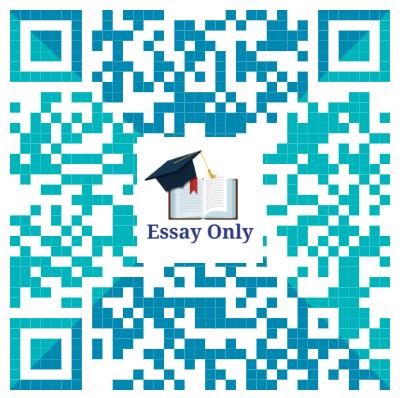Mass Immigration in Albania – European Migration 第二部分
Emigrants Treatment and social crimes
Initially, in 1990, the first migrants into Italy from Albania were taken as refugees. For the consequent two mass migrants, the Italian government did not offer the same refugee status. This was also similar in Greek were the first migrants in 1990-1991 were treated as political asylum seekers and subsequent arrivals were denied leading to massive yearly deportations of the Albanians. The two governments turned their former welcome into rejection (Barjaba, 2004).
Similarly, the media fraternity setup emigrants as the cause of social evils such as crimes and prostitution among others, while the political positions between both Greece and Italy changed towards Albania. For instance, a research by Russell King and Nicola Mai indicated that the Italy media had presented Albanians as undesirable criminals who engaged in human trafficking, violence, drugs and prostitution while the Greece media is quoted to have recorded Albanians as ‘Criminals, the basic cause of poverty and backwardness and the enemy within’. The stereotypes went a long way in establishing bad blood between the two administrations with the Albanian administration and hostile measures by the Greece government towards Albanians (Kosta & Joniada, 2015).
Brain drain
With migration of Albania citizens mainly from central Albania (Durres, Elbasan and Tirana) as student migrants and professionals, the EU saw a rise in elites with an Albanian origin. Many of these migrants extended their visas (both legally and illegally) staying away from their mother country. Research indicates that between 1990 and 2003, an estimated 45% of university professors and researchers, 65% of PhD (acquired from the west 1980-1990)holders along with thousands of graduates left Albania mainly as a result of unemployment with a good number taking with them their families (Barjaba, 2004); (Vullnetari & King, 2008). For Albania, this was a great loss of skilled labor which carried heavy economic and social cost burden for the country. Another research indicates that highly-skilled emigrants in areas such as Canada and USA received attractive compensation which to Albania is capital export (Barjaba, 2004). This qualifies as a drain for the country where the emigrants would qualify in positions to locally lead and invest thus participating in changing the local economy.
Remittances
With the high emigrants’ numbers, the Albanians have over the years build a saving reputation which flows back into their countries financial systems. Previously, the nature of the financial system in the country was untenable which caused most remittances to flow back to the country informally and sometimes undetected (Arrehag & Sjöblom, 2005). Reforms in the system however ensured an increased use by the emigrants sending money back home. In 2002, the average annual savings by emigrants’ families stood at 5,056 Euros representing a 27% of their annual income. Remittances originating from the migrants were recorded to have grown from USD 378 in 1994 to USD 780 in 2003 (Barjaba, 2004). Research notes that the use of the direct remittances mainly is day to day use and only a negligible figure went into investments such as in the real estate industry, agriculture or production. This only improved living standards but not enabling job creation (Barjaba, 2004).
Older generations that were left at Albania largely feel abandoned relying on remittance funds from relatives while more families feel broken with their members stuck abroad without means to travel back (King et al, 2011).
Conclusion
The Albania migration situation may have started as an internal issue due to failing systems but repercussions extended to touch on a wider group of entities; mainly neighbors and the emigrants themselves. Albania could have had stable relations with its neighbors but they were later turned into hostility and unfriendliness as a result of the migration. Among the affected included not only the migrating populations but also the populations, systems and policies of host nations. International bodies dealing with migration and tasked with the responsibilities to ensure emigrants welfare such as the UNCHR need to develop more effective policies in partnership with regional bodies such as the European Union for future safety of migrating populations and strategic migrations.
References
Arrehag, L., Sjöberg, Ö. and Sjöblom, M., 2005. Cross-border migration and remittances in a post-communist society. In Return Flows of Money and Goods in the Korçë District, Albania. South-Eastern Europe Journal of Economics 3 (1): 9-40.
Arrehag, L., Sjöberg, Ö. and Sjöblom, M., 2006. Post-communist cross-border migration in South-Eastern Albania: who leaves? Who stays behind?. Journal of Ethnic and Migration Studies, 32(3), pp.377-402.
Carletto, C., Davis, B., Stampini, M. and Zezza, A., 2006. A Country on the Move: International Migration in Post‐Communist Albania1. International Migration Review, 40(4), pp.767-785.
King, R., Uruçi, E. and Vullnetari, J., 2011. Albanian migration and its effects in comparative perspective. Journal of Balkan and Near Eastern Studies, 13(3), pp.269-286.
Kosta Barjaba. (2004). Albania: Looking Beyond Borders. Available: http://www.migrationpolicy.org/article/albania-looking-beyond-borders. Last accessed 4/14/2016.
Kosta Barjaba and Joniada Barjaba. (2015). Embracing Emigration: The Migration-Development Nexus in Albania. Available: http://www.migrationpolicy.org/article/embracing-emigration-migration-development-nexus-albania. Last accessed 4/14/2016.
Kule, D., Mançellari, A., Papapanagos, H., Qirici, S. and Sanfey, P., 2002. The causes and consequences of albanian emigration during transition: Evidence from micro data1. International Migration Review, 36(1), pp.229-239.
Telo, I., 1999. Employment structure, migration and the informal economy in Albania. SEER: Journal for Labour and Social Affairs in Eastern Europe, 2(1), pp.9-16.
Vullnetari, J. and King, R., 2008. ‘Does your granny eat grass?’On mass migration, care drain and the fate of older people in rural Albania. Global Networks, 8(2), pp.139-171.
Essay Only – 专业论文定制
代写,让大学生活更美好!




